Rave is political, from São Paulo to Amsterdam
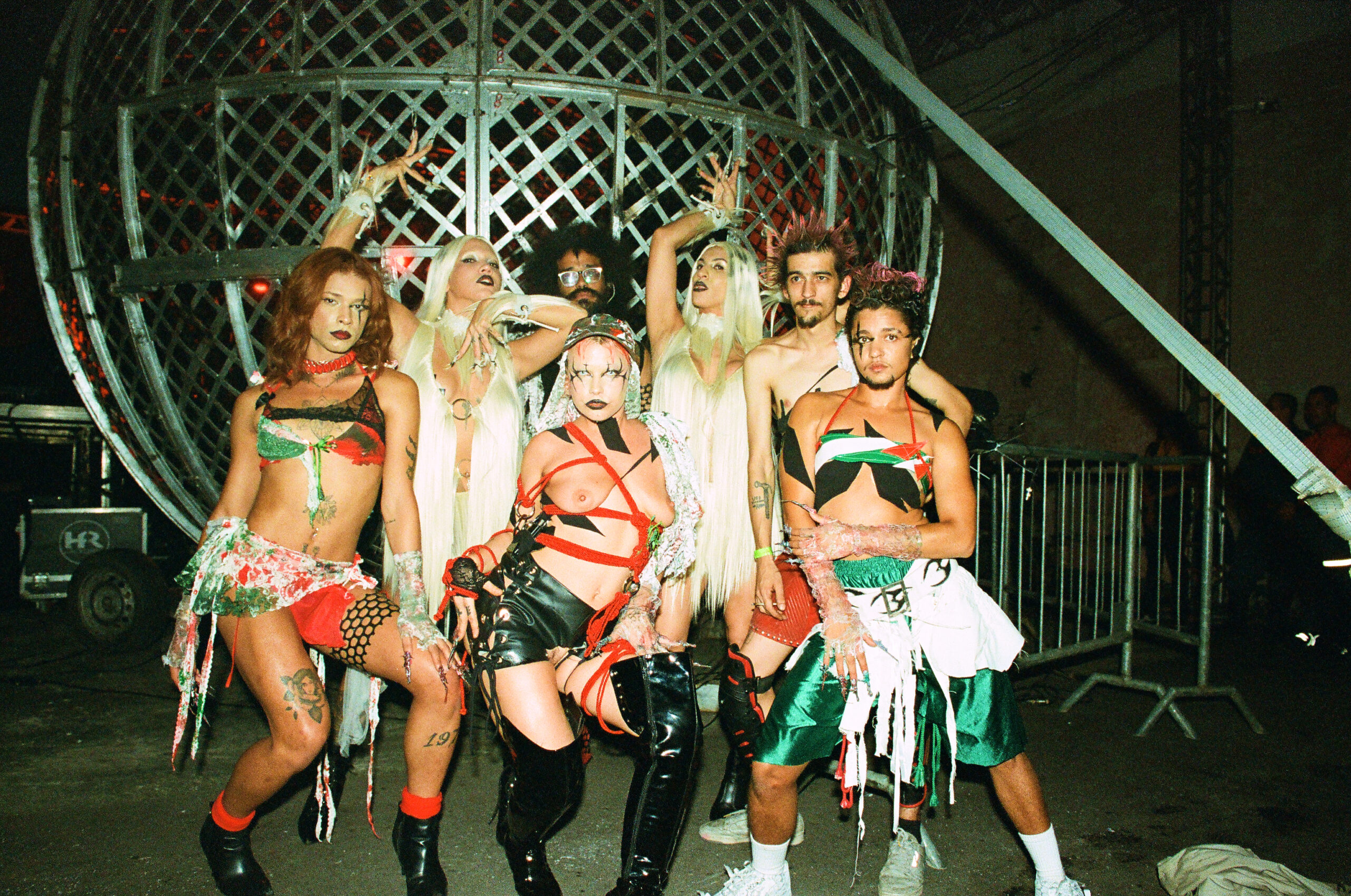
This weekend, one of Brazil’s most ambitiously disruptive collectives, Mamba Negra, are bringing their explosive energy to RAUM. The duo behind the party, Cashu and Laura Diaz, started their journey in São Paulo’s underground electronic scene over 10 years ago – however, their practice runs much deeper than only music. The party rapidly grew by illegally occupying abandoned buildings and contentious spaces to host their events as a form of social movement against the city’s inequalities and factious politics. Much like the snake they’re named after, Mamba Negra is gracious, slithery, and fatally venomous – injecting the oppressive systems across their homeland with the poison of political resistance. To celebrate their return to our city, we reached out to RAUM, who recently turned their beloved Queer-dominated event Spielraum into a permanent space, to catch up with Mamba Negra in anticipation for the night. Join into the conversation between Wassila Abboud, Sven Bijma, and Diego Meijers from RAUM as Cashu shares her insights, ethos, and experience – from São Paulo to Amsterdam!
W: Hey, lovely to speak to you! Tell us a little bit about Mamba Negra, who’s involved, and what do the parties feel like for you?
We started 11 years ago, when the São Paulo scene was having a lot of collectives occupying the streets, squares and abandoned buildings. We grew up in this environment. I was studying architecture – my main study was also artists’ occupations. With Mamba, we were always thinking about having safe spaces for women and the LGBT community, we started our own thing. After four years, the party grew a lot – after the pandemic we got like triple the number of attendees. So nowadays it’s almost a festival. We come out of difficult times, also in the São Paulo scene and Brazil economy. But still, we are always trying to have the best party in the world, no matter what.
W: That’s no small task.
It’s about trying to figure out how to create this space, not just because of the music, but also the arts, the performances and the visuals – the people inside the party. I think the crowd really creates the atmosphere together. This is why we care about all the parts of the party, and look to be inclusive of the Trans and LGBTQ community from the security team to the artists we put on.
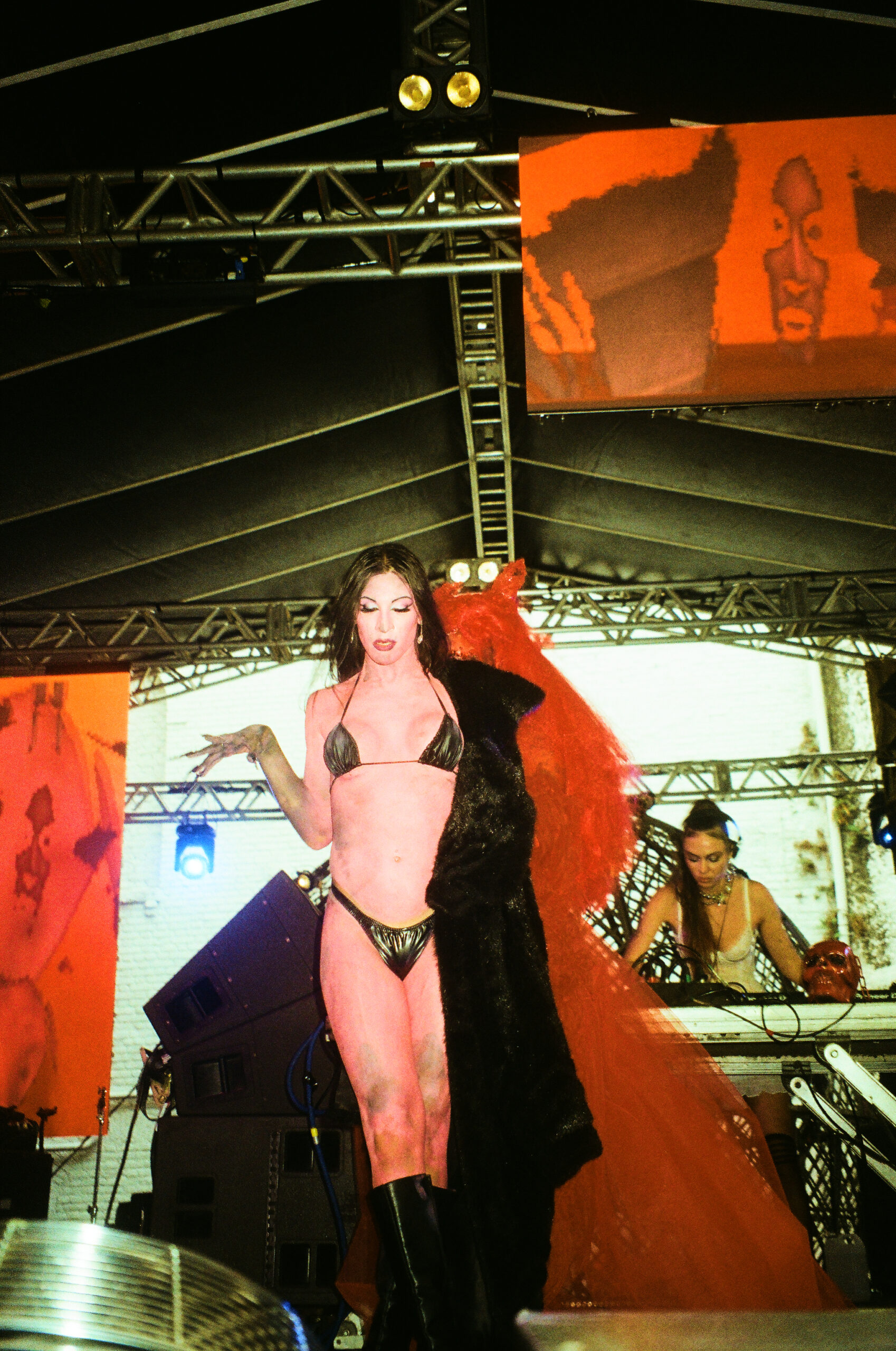
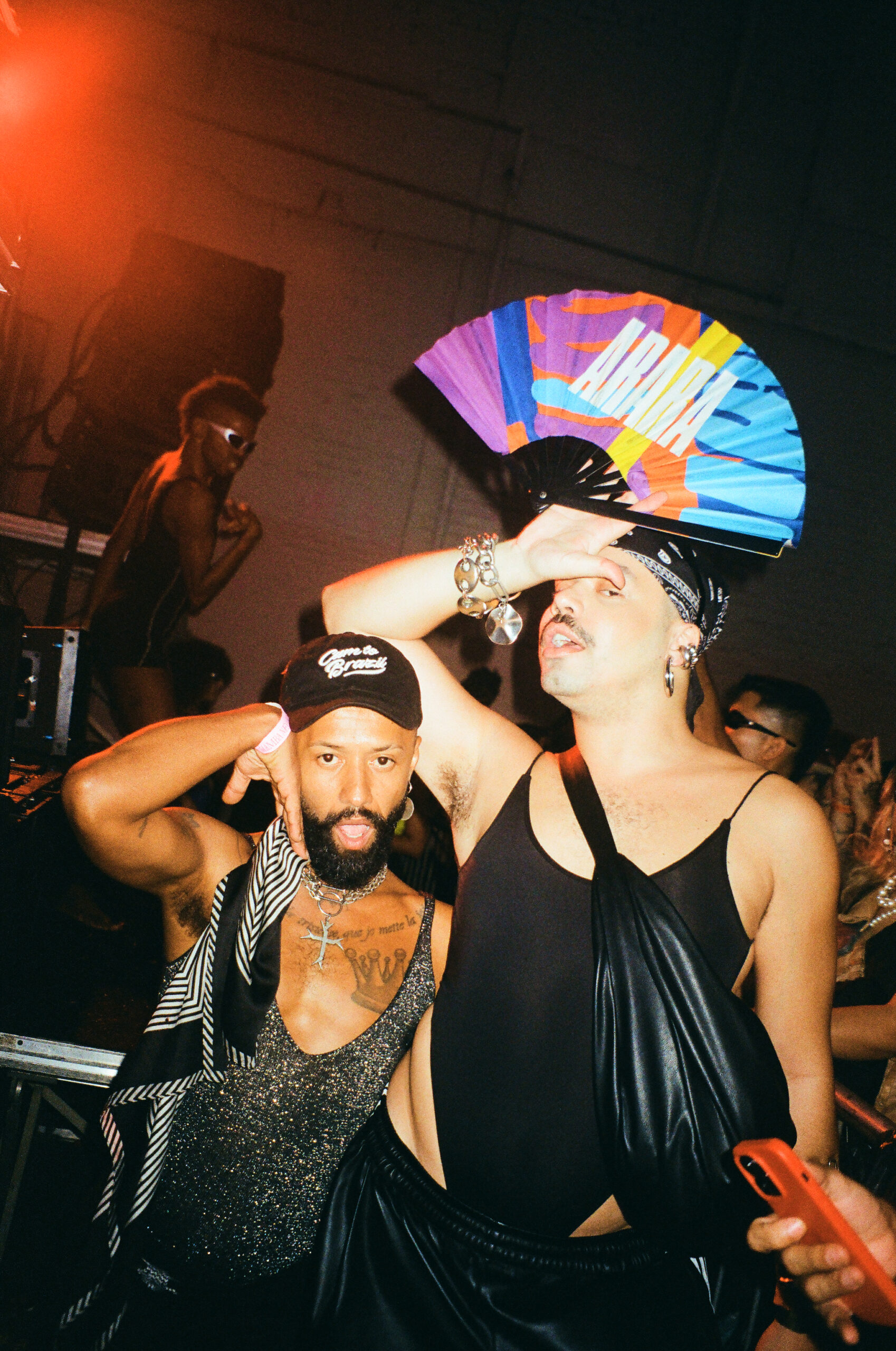
S: Did you say that you have more attendees after the pandemic?
Yeah. We used to have like 1,500 to 2,000 people before the pandemic and the biggest ones like 2,500. And then after the pandemic was like 4-5,000.
S: That’s insane.
The birthday party last year was like 8,000. I think this next one will be only three because we’re doing it in a small place. We’ve been having a lot of difficult financial problems since last year. People can’t come every time. It’s been difficult to sell enough tickets – everything is much more expensive because of the inflation in Brazil. And then it’s so much more expensive and people cannot afford it. We’ve had problems with maintaining the good crowd without upping the ticket prices. It’s been a nightmare for a lot of parties, not just us. Sadly, the scene is really unstable now in Brazil.
W: How has the scene changed from when the collective started to now? What are some of the things you’ve observed about the club culture? And I guess how that fits in politically with what’s happening.
Yeah it’s changed a lot, the parties used to be small. When we started it was like 500 people, and then they grew so much. When I started you didn’t have many women playing, compared to now. And the LGBT community dominates a lot. The sound itself has also changed a lot. You started hearing a lot more Baile Funk, whereas before it was much more techno or house. And then after that, there’s been a lot of a much harder sound.. And now, the mix with Baile funk and Latin techno is everything.
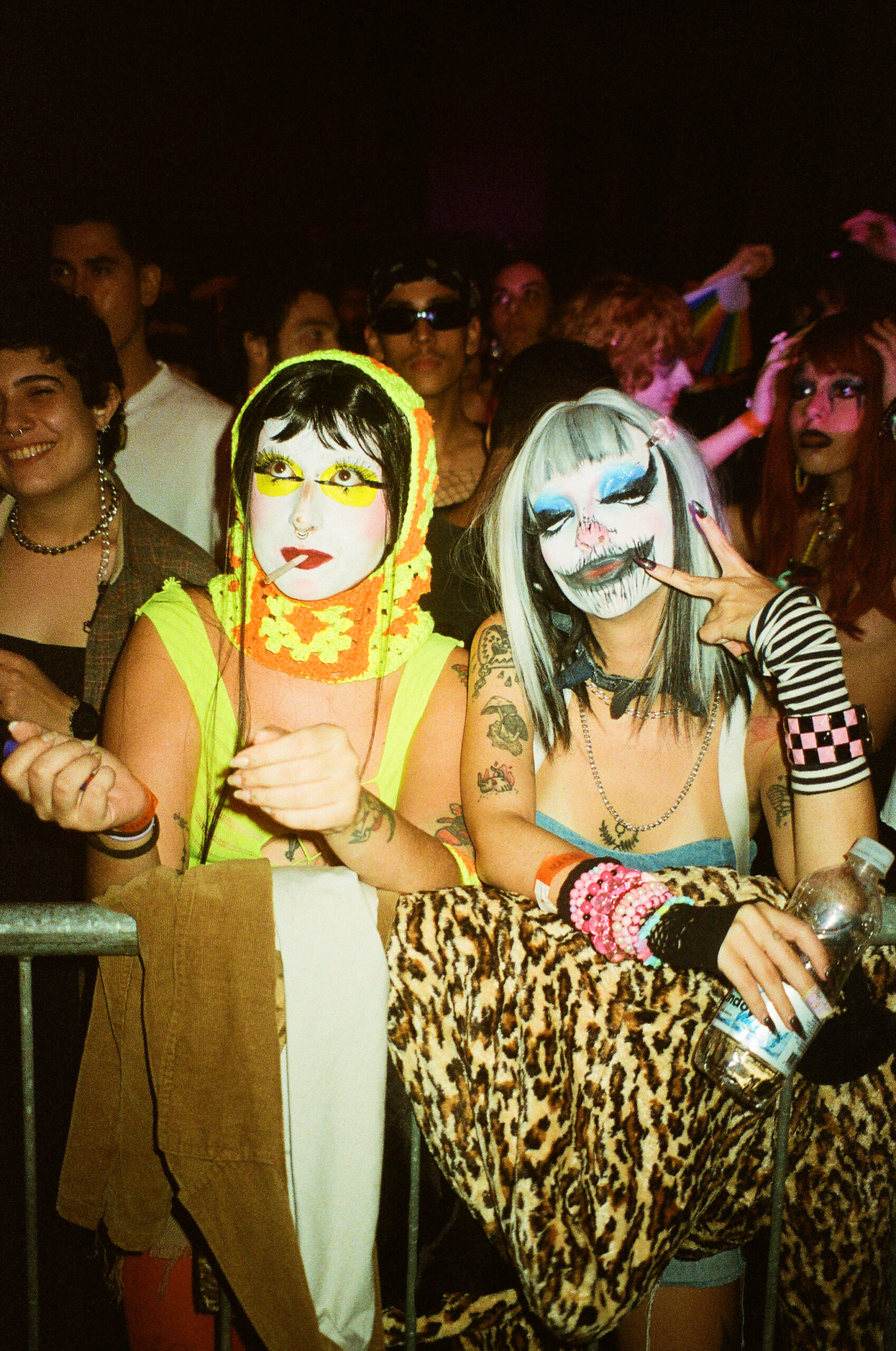
S: It’s funny because here in Amsterdam I think it’s different actually. Before the pandemic, it was way more techno, at least that’s my perception. Then later, it turned into being more housey, right? The whole house sound has evolved way more. And it feels like it’s getting less techno.
Yeah, in Brazil it’s actually more housey too, but in the LGBT scene, it’s more really fast techno. To be a DJ in Brazil, you need to play everything. You need to adapt. You need to go in different directions every time. Even if you’re not a house DJ, you still need to play sometimes, which sucks a bit. At least, there is freedom to change styles. So, you can cross from more groovy stuff to some techno between and then come back and Baile Funk. So it’s not strictly one sound.
W: So would you say Baile Funk and more Latin is coming back now?
Yeah, I think so. After the pandemic, a lot of labels went out, so we have a lot more independent producers now. So, I think the sound is spreading much more even here in Europe. Before it used to be just me and Betsy, but now all the Brazilians are here. They’re all in Europe.
W: It’s cute. And what’s your relationship like with Sao Paulo as a city?
I love Sao Paulo. I’m super grounded there. But it’s been really weird the last few years, it got a lot more dangerous. You don’t have the feeling that we had before. To walk in the center to do everything walking – now it’s impossible because it’s super dangerous. So everything is cars and Ubers every time. So we lost a bit of the sense of living in a city you know. It’s not the same.
S: I remember the last time you played at Spielraum, in 2018 during ADE I think. Bolsonaro was just elected, and you got the news on the same day. I remember you being quite depressed about it. I was wondering how things have changed also as opposed to now with Lula being the president. Because you also say it’s become more dangerous. But have things been also dangerous during Bolsonaro’s period?
Yeah. I think it was a mix from Bolsonaro as a president and a pandemic. The streets were empty, but they were dominated by gangs and everything. Bolsonaro crippled Brazil so much, that Lula cannot repair it so fast. And also the mayor in Sao Paulo, they have been right wing for the last 80 years. So they don’t really do anything for the city, they are just trying to revitalise the center by opening a lot of posh clubs. It’s just for the economy, but it doesn’t have any connection to the people who are walking in the streets. It’s still very horrible because you travel by Uber, and then you don’t have any connection to the streets anymore. But I guess I think this year we have elections again. I hope we’ll enter the left side finally.
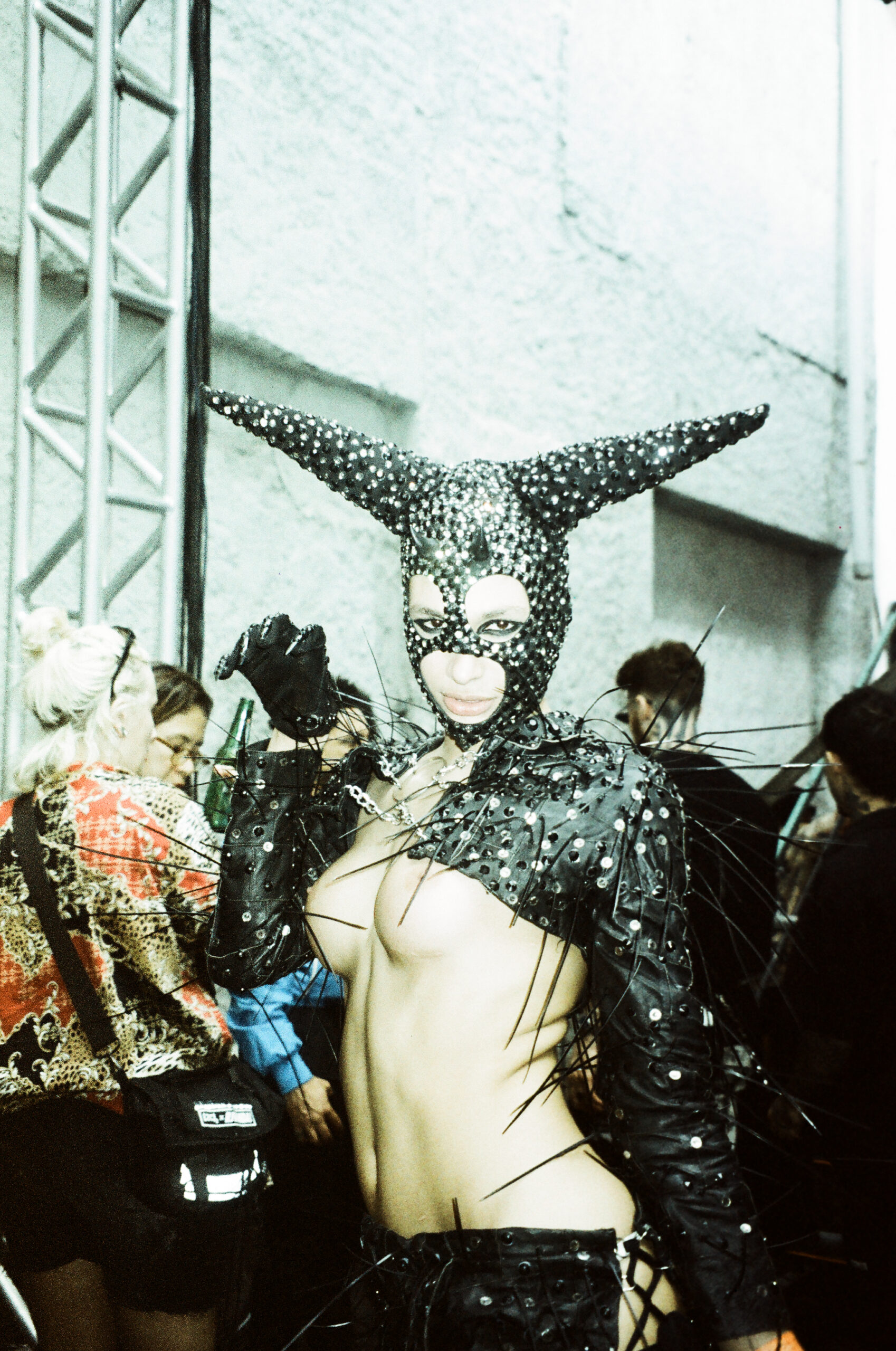
W: And with all those challenges on multiple fronts like inflation, class struggle, and many challenges that maybe manifest in more subtle ways, what did it mean for you as a collective to occupy public spaces as a form of direct political action?
Nowadays, it’s been super difficult to occupy public spaces. So we haven’t done street parties for years because when we do, the municipality closes the squares and requires you to have tickets… but we don’t agree with having tickets to a public space. But we’re always trying to do something different to have different views inside the party. We’ve had the party for 8 years now. We’d like to provide a space within a party where the community can go to and feel free inside.
W: Yeah. You mentioned before you used to be in architecture but then moved to music and then started Mamba Negra. What was the thinking behind that big transition in your life?
It was a huge transition because I also really loved architecture. But I didn’t like to work in offices and stuff, I wanted to do projects that could actually change something in the city. I now use architecture for the parties. I always like figuring out the best place to have the bar, how to occupy the buildings, how to approach huge factories… I like to draw. But to do architecture in front of the computer for the whole day, I cannot. This is why I’m more a DJ than a producer. I don’t want to be in my studio on my computer alone. The space makes a lot of difference for me. How is the open air? This changes a lot for how I can flow and treat inside the sound. So I think I’m still an architect. And I also like the good thing in architecture university is that you learn so many different things in art. You can go to a lot of places, it’s a really good degree to open your mind to different things.
W: Definitely. And what do you think is influencing the sounds of São Paolo at the moment? You mentioned before that there’s this new trend of house that’s dominating the mainstream. Where do you think that’s coming from?
I think house was always there, this is not a new thing. It’s Brazil. People like to be happy. I don’t know why. But I think this changed a lot with Baile Funk. Now we have many more parties with all the DJs playing Baile Funk and it wasn’t normal before. A lot of techno crowds were always complaining about Baile Funk in the middle of the sets. And now they just gave up.
D: I mean the techno crowd is always complaining, right? That’s my experience, haha.
Yeah. Yeah. What is that track? What the fuck? I don’t I don’t agree with that. Is there a breakbeat in it? What? Haha.
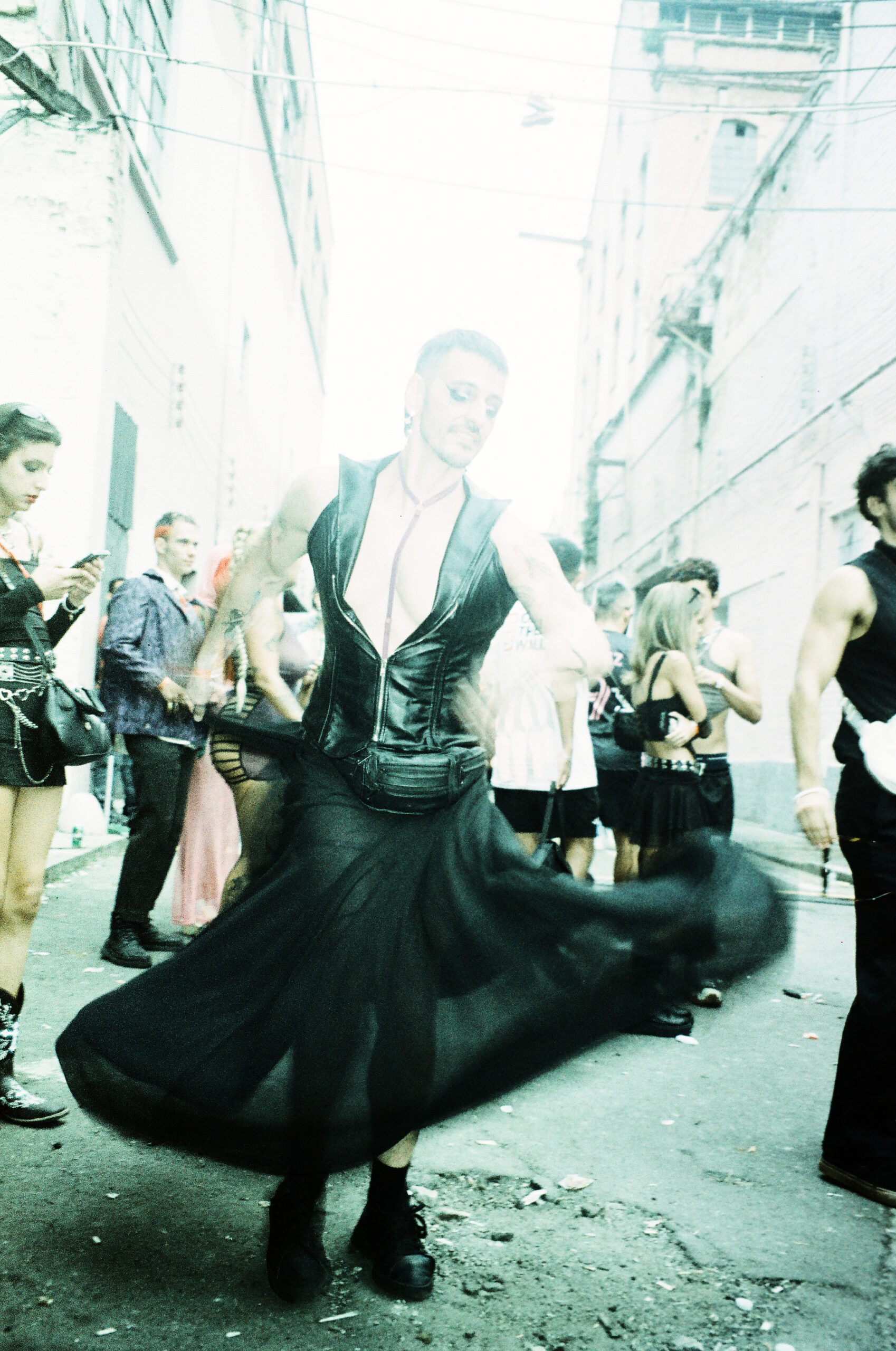
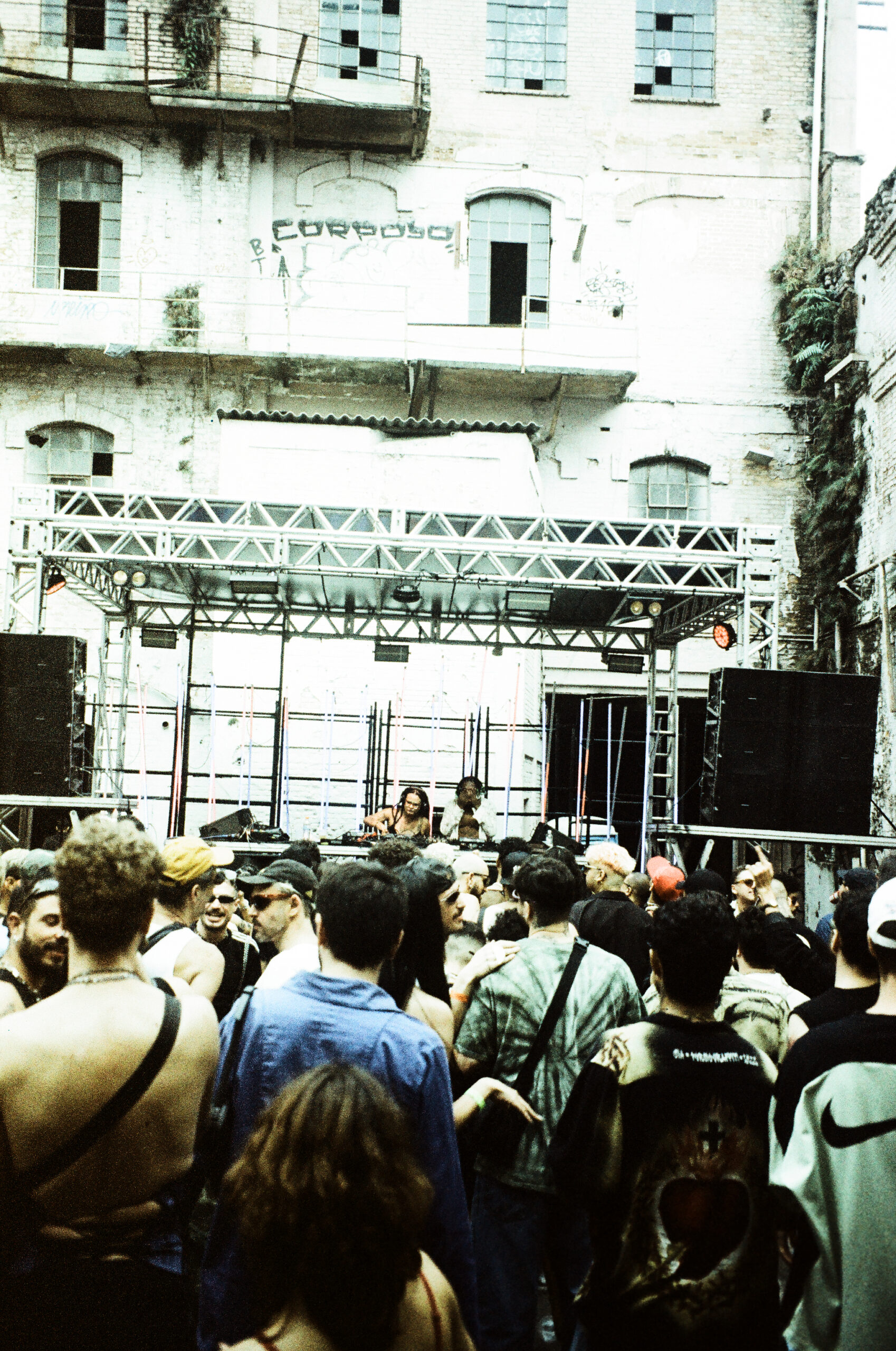
W: It’s a universal problem! I wanted to ask about the transition from running parties to launching a record label, which is huge. What was happening at the time for you or when you made this decision?
We just wanted to start with a record label and release the artists that have been playing at the parties also. But parties always take up the most of our time, especially now that we have such a big crowd. So it’s hard to do both, as it’s also really difficult to pay for the record label, especially in Brazil.
W: Is it one stage or do you have several stages?
Normally we have two or three stages, but now we are turning into one for the next ones because of money. It’s difficult, but Mamba is such an important gig for a lot of DJs, so we have a lot of pressure to include a lot of artists and new faces.
D: Even for us as a club now, it’s already difficult.
It’s also super sad because sometimes a lot of friends from here want to go to Brazil. Everyone will be there in March for the carnival. And I have to tell them I don’t have money to have five artists from Europe.
W: You also mostly push local talent, right?
Yeah, we mostly book more Brazilian DJs. And this is why the party grew at first, because we were booking just Brazilian DJs for five years. The crowd really goes for the artists that live there. We also bring new artists that are not from Sao Paulo, depending on the state we play in. I always need to have someone that is not from Sao Paulo, but another city in Brazil for the north. It’s important for the Brazilian scene.
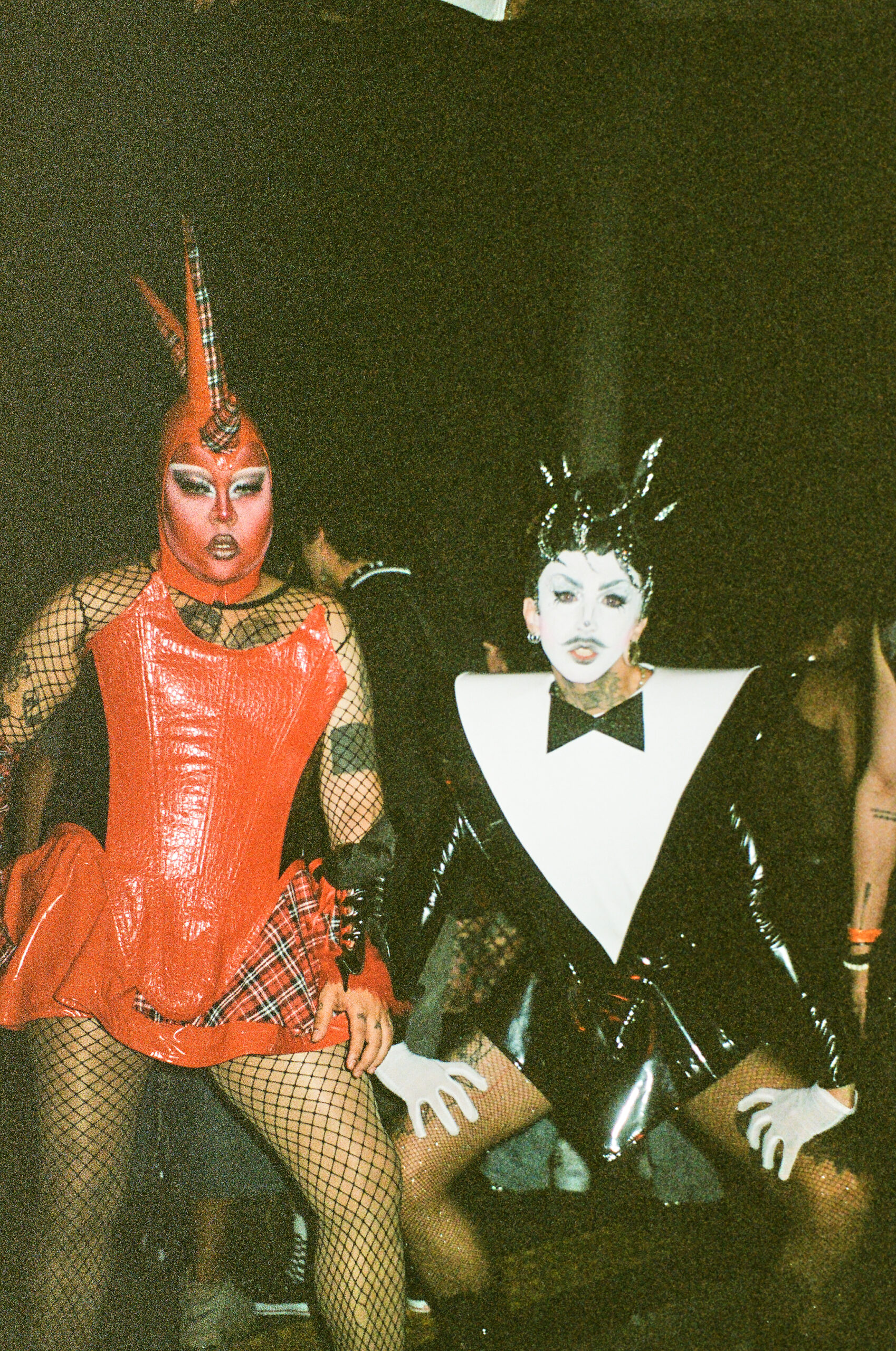
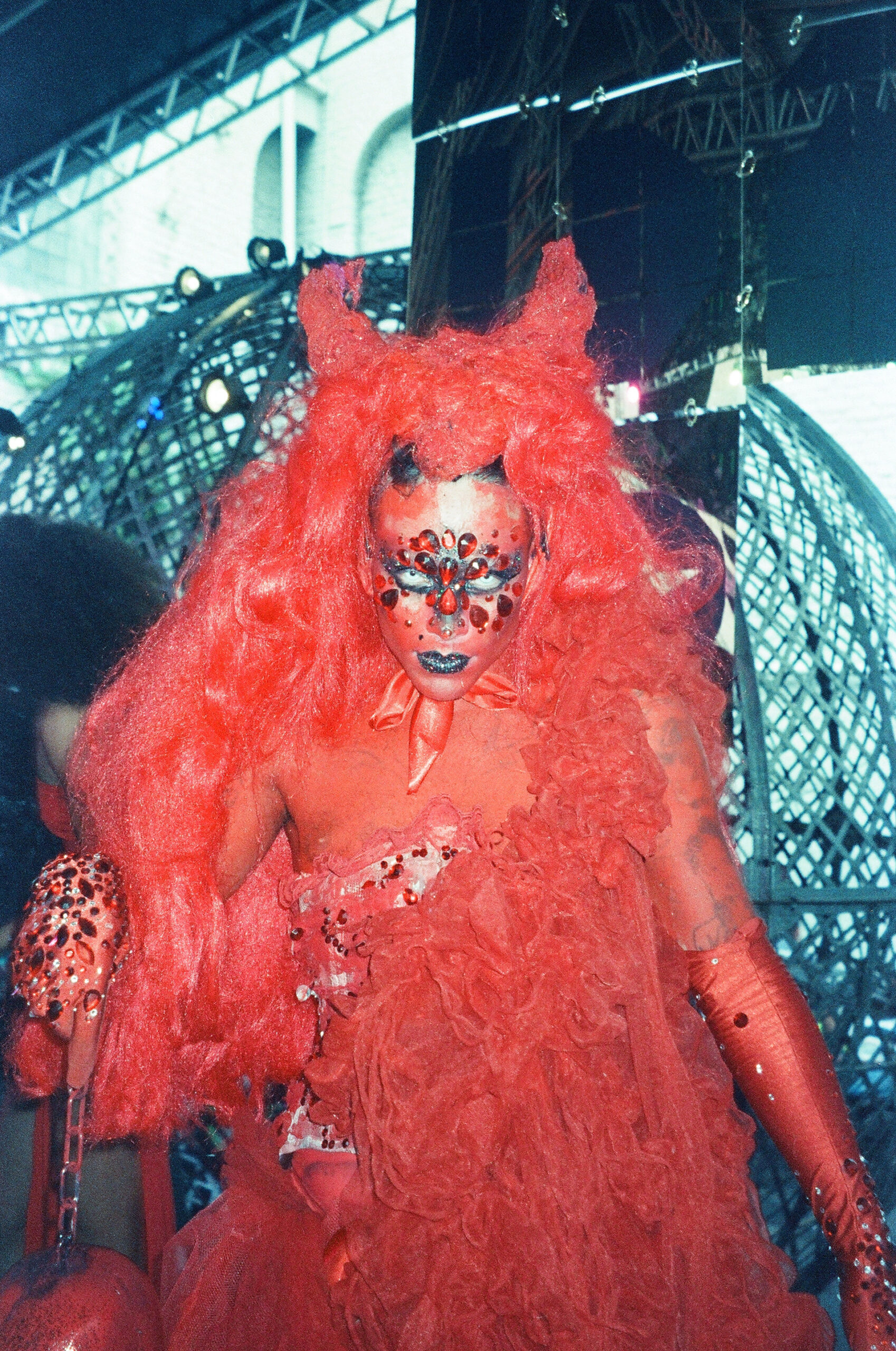
W: What are the things you look for when you’re organizing a party and you’re thinking about some new artists to include? What are the types of things that you’re finding really interesting when you are programming?
It’s mostly about the sound. We always have women, but normally the sound that we are making always fits the party. So, I don’t need to worry too much whether the lineup is equilibrated or inclusive, as the Brazilian scene has naturally been very diverse and representative of the LGBT communities.
D: It’s also just your network and the artists that you pay attention to that are automatically either women, or trans people, or people of colour. It’s also the way we book. I remember people asking how we find women or trans artists, but it’s just how we work in our community – we’re not specifically looking for a certain identity.
Yeah, it’s the same, it’s our connections. But of course, for artists from outside, I invite straight male guys to play because of the sound at times. Our audience sometimes wants to listen to a very specific sound. We are super far away from Europe and the US, so we don’t have too many connections for the artists. In Brazil, if you have someone that everyone wants to listen to and the sound fits the party, we go for it. I cannot just exclude someone because they’re straight if their sound really matches the party.
W: How are you feeling about your Amsterdam tour?
I’m very excited!
D: I wonder what your architect’s eye will tell.
S: Yeah, we’re very proud of the space. It’s so interesting what you say about how you look at organizing parties. Both Diego and I also have very different backgrounds. Diego is an urban planner, and I come from theater. Of course, we also did parties, and now with the club, you always bring along the expertise or the knowledge that you have from that other field that you’re coming from, which makes it so much more interesting. I think it really amplifies how we look and how we created this, so I’m curious what you think.
Yeah, the physical space plays such a big part in the energy in the room and how people are engaging with the music.
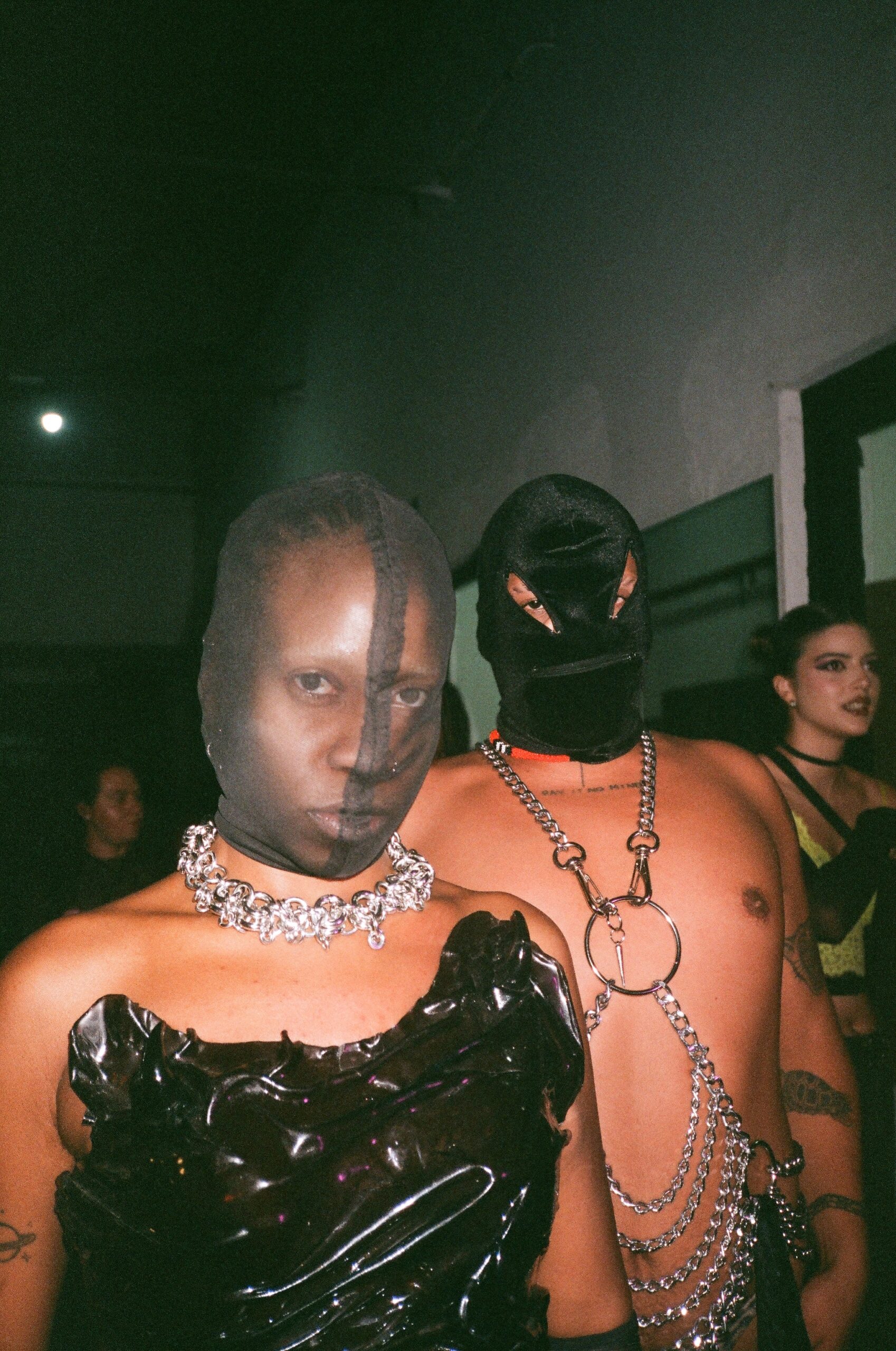
W: How do you build that relationship with a physical space, especially having carved this really amazing subculture that exists freely through occupying public spaces?
The public spaces are really interesting, because you are playing for people that don’t live in that environment. It’s really different, because you can play a lot of different styles, and then you see some old person dancing there and connect with them. This is why Mamba grew – we were doing a lot of street parties in the beginning, and a lot of people who normally don’t listen to techno would get into it, because we mix in so many genres.
W: Totally. I can see a lot of links with Lebanon, where I’m from. There’s many oppressive systems affecting the country, including the privatisation of almost the entire city of Beirut, freedom of speech, violent racism against migrants, and the looming settler-colonial project next door. Maneuvering around these systems requires a certain imagination beyond rationality, so, yeah, it’s been really interesting reading about some of the movements in the cultural scene that have popped up underground in Sao Paulo, and how it connects with other parts of the world, Lebanon as well.
Yeah, and there is a thing also there in Brazil the electronic music is not a thing, in Brazil, because we have, a lot of totally different styles inside the country, it’s not the main thing people, it’s just, a small scene for music, so normally people doesn’t listen, electronic music, so when you’re playing,, you’re, connecting with people that actually,,
S: I think here in Europe, everyone already listens to electronic music, it’s the main thing. But in Brazil it’s not like that at all. Amsterdam is a super small city (compared to São Paulo, it’s a village), but it still has a huge industry when it comes to electronic music. The public is very used to the sound of it, which can get quite snobby actually. Still, we find our queer crowd to be really receptive to new sounds. Amsterdam is just so super neoliberal, everything has become privatised, there’s barely any public space. To find this place to create a club here, we had to work very hard to keep our crowd interested. This city is very hard to live in for people that don’t have a lot of money, so they either go away, or they are replaced by rich people, who are quite boring ha-ha. So it’s an interesting contrast.
Yeah, but I like the Amsterdam crowd. I think everyone is super open to different sounds. Every time that I played, people would enter the sound with me.
W: On a final note, are there any other artists or DJs at the moment that you think are doing great things that you think we should keep an eye on?
Yeah, Alírio is super good, also Bassur and Id Libra. Crazed (Br) is a super good producer, he’s never played in Europe yet. And there are also these two artists from the North, Wave Zim and Brunoso, they’re super good producers.
W:I can’t wait to have you over, and it’s gonna be cute!
Yeah, I’m excited too, it’ll be nice.
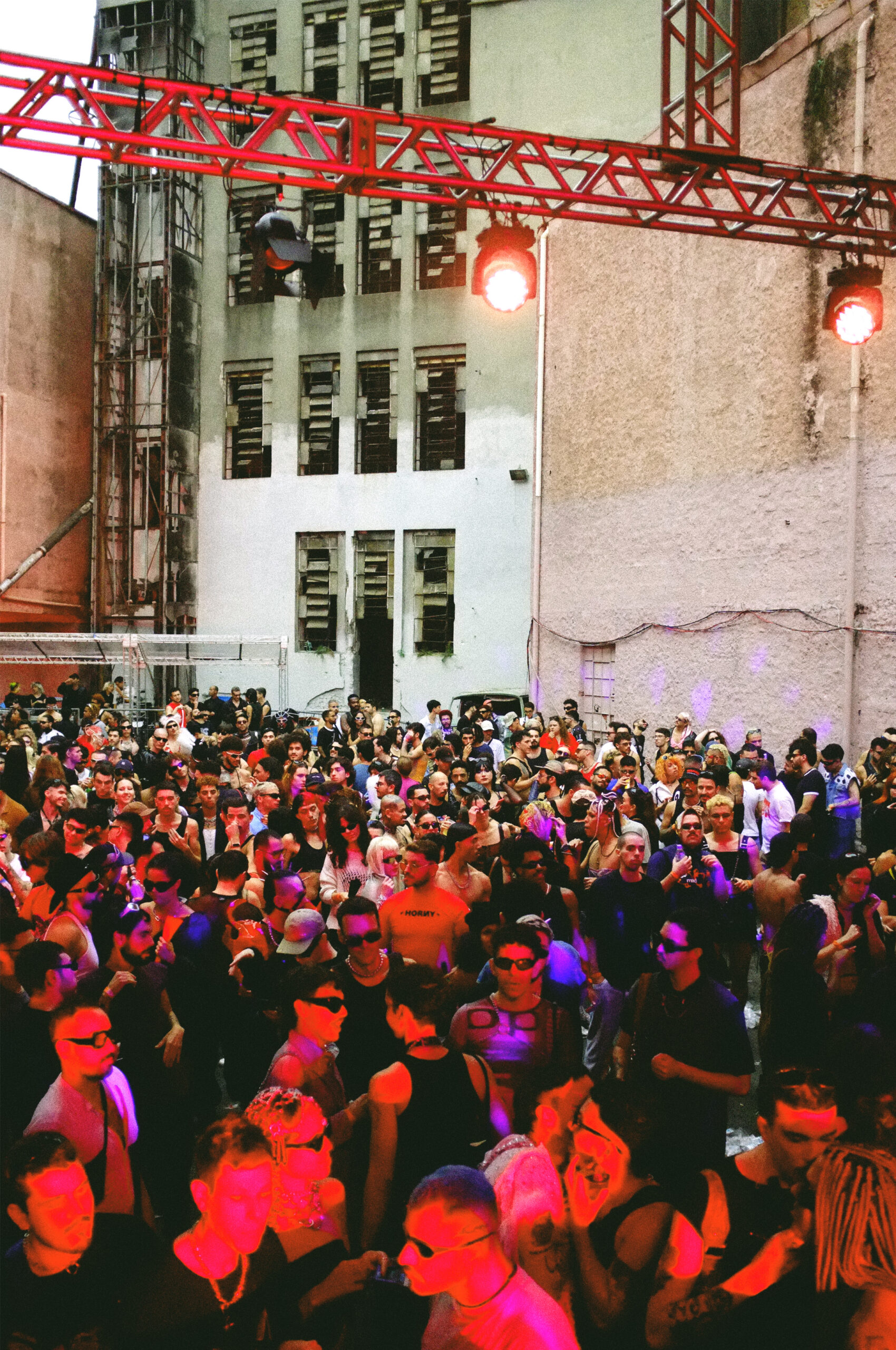
Words by Evita Shrestha
Images courtesy of Mamba Negra